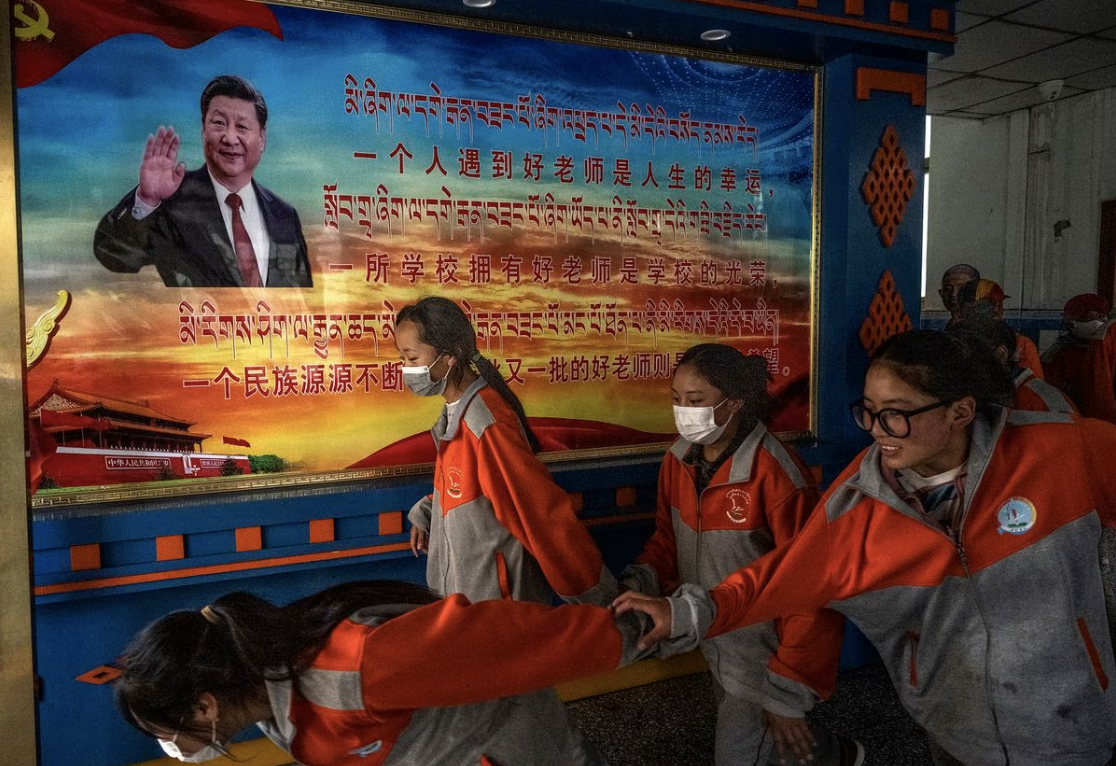MPs urge Canada to sanction officials responsible for Chinese-run residential schools in Tibet
Original article: https://www.theglobeandmail.com/politics/article-mps-urge-canada-to-sanction-officials-responsible-for-chinese-run/
A parliamentary committee is calling on Ottawa to sanction officials responsible for China-run residential boarding schools in Tibet and to issue a statement calling for an end to the system, which it says mirrors Canada’s historical treatment of Indigenous children.
Nine-hundred-thousand Tibetan children in China have been separated from families and forcibly required to attend classes in the Han Chinese language by ethnically Han teachers, according to a new report released Friday by the Commons subcommittee on international human rights.
“By carrying out assimilationist policies that deprive minority groups of their ancestral culture, suppress their language and separate children from their communities, the People’s Republic of China is causing traumatic loss at both the individual and national level,” it says.
The subcommittee’s call for action on Tibet’s boarding schools echoes Canada’s decision two years ago, alongside the U.S., Britain and the European Union, to sanction Chinese officials overseeing Beijing’s brutal treatment of Muslim minorities in Xinjiang, including the Uyghurs.
The MPs who authored the new subcommittee report acknowledge Canada’s own dark history on residential schools as bolstering Ottawa’s stance on Tibet, which China invaded and annexed more than 70 years ago.
“Canada is particularly well-positioned to lead on this issue, given its acknowledgment of the major harms caused by its own twentieth century system of residential schools designed to assimilate Indigenous populations into the majority Euro-Canadian population,” the report says.
The Truth and Reconciliation Commission ran for more than six years in Canada and documented the history and effect of the residential-school system on Indigenous students and their families.
Liberal MP Sameer Zuberi said Canada is well aware of the trauma these schools can inflict on cultures and people.
“We know how deeply damaging this is to a people and to the social fabric, and we don’t wish this on any other nation of the world,” he said.
The Chinese embassy in Ottawa was not able to immediately respond to the report, but the diplomatic mission has previously dismissed reporting about Tibetan residential schools, accusing media of “hyping up” a false narrative and calling its decades-old intervention in Tibet a “peaceful liberation” of the region.
Analysis: As Beijing expels more foreign journalists, it’s China that is hurt more than anyone else
Tony Keller: A new Cold War with China? How about a new détente instead
Witnesses told the subcommittee during hearings that this assimilation effort has ramped up under Chinese President Xi Jinping, and that in addition to 800,000 children at boarding schools, there are another 100,000 younger students at 50 boarding preschools.
This, the report says, is “taking place against the will of parents and children.” Witnesses told the subcommittee that parents have “no choice but to send their children to live in these schools, because the authorities have closed the local village schools” and the children “are forced to go to boarding schools.”
Lhadon Tethong, director of the Tibet Action Institute, told MPs on the subcommittee that forced boarding schools are an intentional policy of the PRC government “to isolate children from their families so as to erase their Tibetan identities and replace it with a Chinese identity.”
A team of UN special rapporteurs in a recent report documented “deep and serious negative psychological and social impacts” as a result of the loss of family connections and feelings of loneliness, among other things, the subcommittee said.
The subcommittee said these residential schools have “simultaneously phased out Tibetan language instruction and Tibetan-produced curriculum materials in favour of those employing Han Chinese language and cultural resources and teachers.”



